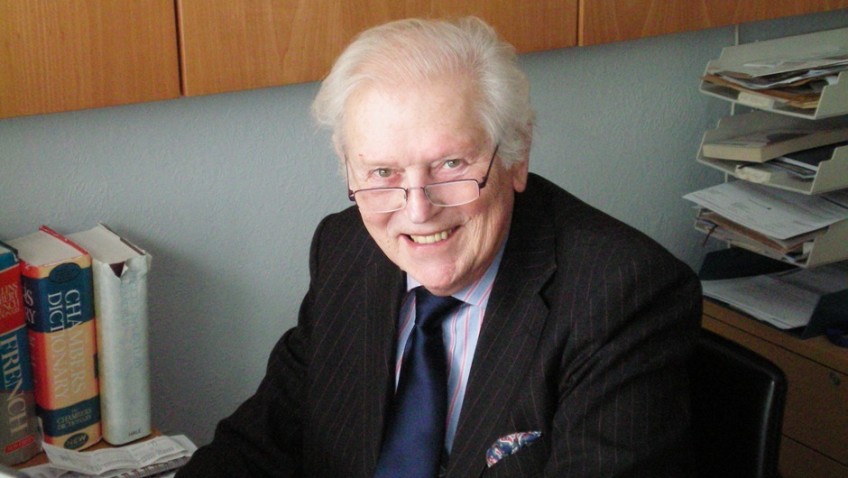Having 20-20 vision is a huge benefit I had and never gave it a thought when I was young. On top of that I am long sighted. Only in recent times have I needed specs for reading and at the lowest setting. So why am I not seeing things?
Failing or fading memories is a common feature that so many people express today. That is much less surprising given the weight of personal and public matter that can overwhelm us.
So much that is entirely new is coming at us with ever increasing speed. But at least we can see the pictures.
It is not pictures that bother me, just ordinary everyday things. In my family I am well known for ‘losing’ things. Car keys, wallet, specs in fact many of those items I use regularly but also others that only I use and only I am responsible for.
My family tell me to sit down and think back to when I last had that item. As you would expect this is where that memory problem rears its head. I am asked for information about where I have been looking and that is when my son immediately starts to look in those very places. Why? Because I have those very odd unseeing eyes.
The missing item is frequently not in the place it should be. That is to say it is not where I habitually keep it. Nevertheless it is not hidden, or more properly I have not intentionally hidden it. Maybe a subsequent placing of a bit of paper is partially covering it but to everyone else it is in clear sight. Yet not to me.
I find myself looking at a table, desk, counter yet failing to see the object. It is almost as if that space should never contain my item and therefore my unseeing eyes do not locate it. I see what should be there but not the misplaced item.
Then comes the chastisement. One of my family, usually my son, will appear asking whether I had looked in a specific place, one I had previously included when asked. I have to admit yes I did look there. Like a modern magician he produces the article with a flourish and, grinning like the proverbial Cheshire cat, says that is precisely the spot where he located the item.
There follows a day of reminders to get my eyes checked; offers to phone the optician to make an appointment; commiserations about age and more. I get my own back when we are on a motorway and I ask them to read that sign in the distance which is clear to me but they have to wait until we are almost upon it. But that does not resolve my difficulty.
So as you might expect I have evolved a system for finding those missing objects. Firstly, I must not give any indication that I might be looking for something. That is a sure givaway to the family who immediately pounce on me to ‘help’ me locate it. At that point I know I have lost.
Instead I must appear to be busy doing something else. Perhaps casually picking on an item on the counter and asking why it is there instead of being in a cupboard. Then I must put up with a sharp response while taking the opportunity to relocate that item on the counter. This gives me time to look closely at every other item thereon. Which appears to the family as a deliberate attempt to find something wrong while in fact I am searching for my missing item.
Unfortunately this has enveloped me in a cloud called interference! Go away and stop meddling is the common retort. The next step is to choose another location being careful to close the door. There I start to tidy up whatever surface is available. If the door opens I am merely obeying instructions to go away and am trying to be helpful by tidying an obvious mess.
Here I have to be ultra careful. Although I have been known to be good at clearing up, members of my family have different ideas about my capacity to do so and continue to manage everyday activities. To put it mildly I may not be as quick as I used to be. Consequently I must have a prepared reason, such as I’ve been wanting to do this all week. I get an odd look and reluctant acceptance.
The search becomes more difficult. I know I am under suspicion and must be seen to be unconcerned. So I make haste to finish the clear up making sure to move everything so that my missing object cannot avoid contact with my hands if not my eyes. That done the next step is to do the opposite – I sit down to read a magazine.
Now this trick is very rewarding. I get on with reading the magazine while the family relaxes convinced that I am not going to do anything they think I should not be doing. After a while I finish the articles that interest me and the next step is to further quell any remaining doubts about what I am doing by asking who wants tea. Would that be tea with biscuits or some cake?
After preparation and everyone sitting down for tea they are relaxed and have forgotten what I had been doing. I can then clear away and put my next step into action. This is my masterpiece.
Knowing my family, as one does, I pick on an item that we all use from time to time, one which I had noticed was in an unusual spot and which I had deliberately nudged into hiding as I was preparing the tea.
Then I ask my family for help! I thought ‘x’ was kept here but cannot see it. Knowing they will immediately respond by going into search mode I can appear to be looking with them while watching to see what they uncover. They have an unfailing ability to ‘find’ a number of objects including the hidden one and also to come across my lost item. The latter is usually referred to as yet another of my misplaced items which they have discovered and which will save them having to search for it when I need it.
Bingo! Now I have what I was looking for without the family realising that was my intention. But that still leaves me with those unseeing eyes.
by Peter Bray




